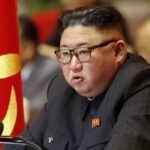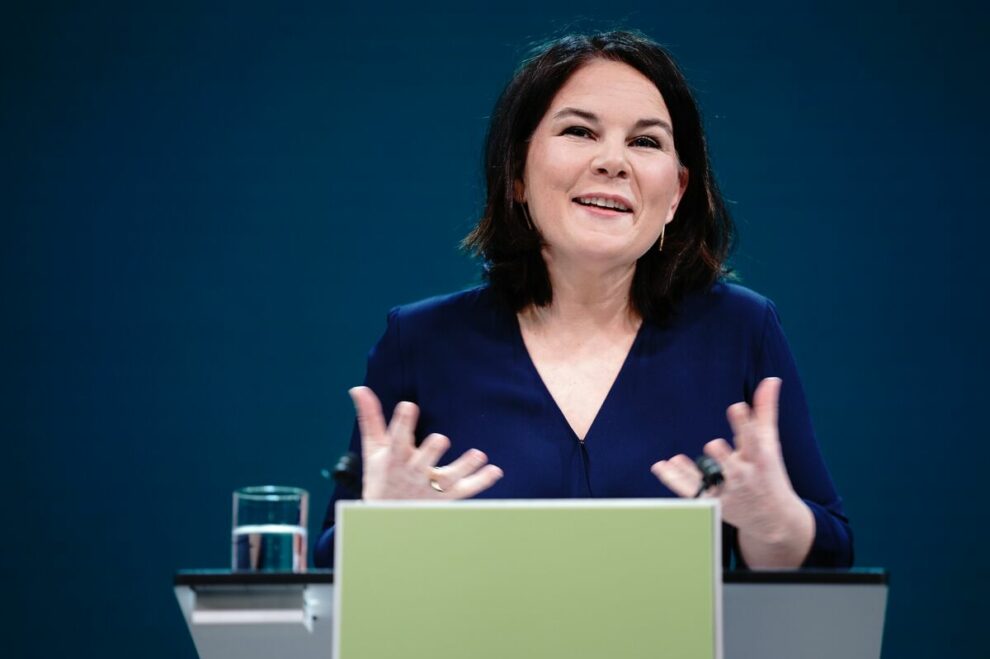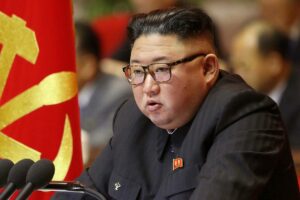The EU ‘cannot be indifferent’ to Chinese escalation around Taiwan, according to Baerbock.
Germany’s Foreign Minister Annalena Baerbock on Thursday significantly distanced Berlin from contentious remarks by French President Emmanuel Macron that cast doubt over whether Europe would help the U.S. if communist China invades democratic Taiwan.
Macron triggered fears about the transatlantic alliance over the weekend with comments that Europe should chart an independent course on Taiwan, by not acting as a “follower” to the U.S. and not getting involved in crises that were not its concern. His words sparked particular dismay among those who view the U.S. as Europe’s key security ally — notably being the main party arming Ukraine against Russia.
Speaking during a visit to China, Baerbock said the EU “cannot be indifferent” to tensions over Taiwan, while stressing that close partnerships with partners with shared values like the U.S. would be crucial “when we face our own security threats” such as with Russia.
“We are currently seeing how important it is to have partners around the world who share our values at our side when we face our own security threats. That is why it is so important for us, because we are vulnerable as Germany and as the European Union, that we cannot be indifferent to the tensions in the Taiwan Strait,” Baerbock said in Tianjin, where she began a three-day trip to China.
Underlining the importance of the region to Europe, she also stressed that 50 percent of world trade and 70 percent of the global semiconductor production are being shipped through the region, and added: “Free access in the Taiwan Strait is also in our own economic interest.”
Macron’s comments elicited pushback from not only European countries dependent on U.S. security guarantees, but also U.S. Republican heavyweights who have long questioned France’s commitment to transatlantic security. Former U.S. President Donald Trump, for instance, described Macron as kissing Xi Jinping’s ass.
On Wednesday, Macron sought to row back from a sense that Paris could leave Taiwan in the lurch, but doubled down on his argument that Europe would not necessarily follow the U.S. lead on regional security.
For her part, Baerbock, a German Green Party heavyweight — known for her hard-line rhetoric on China deemed unpalatable by some in the coalition leader, the Social Democratic Party — avoided a direct clash with Paris.
“If you share a common internal market, then you cannot have different positions on the EU’s largest trading partner, [China],” she said. “With no partner do we coordinate so closely in the European Union as with our friends in France.”
She went on, however, to warn that some German businesses have built up a risky reliance on China.
Germany has “dependencies [on China] in some areas that are not healthy,” she said. “What is clear … is that the lessons we learn from the Russian war of aggression must, of course, also be learned with China in mind.”
China, on the other hand, warned Berlin not to “politicize” commercial relationship between the two countries, amid reports that Germany could review the partial sale of Hamburg port to China’s state-owned magnate Cosco.
“We hope Germany will not make normal commercial cooperation politicized, ideological and securitized, and put up artificial barriers,” Foreign Ministry Spokesman Wang Wenbin said Thursday.
Source: Politico















